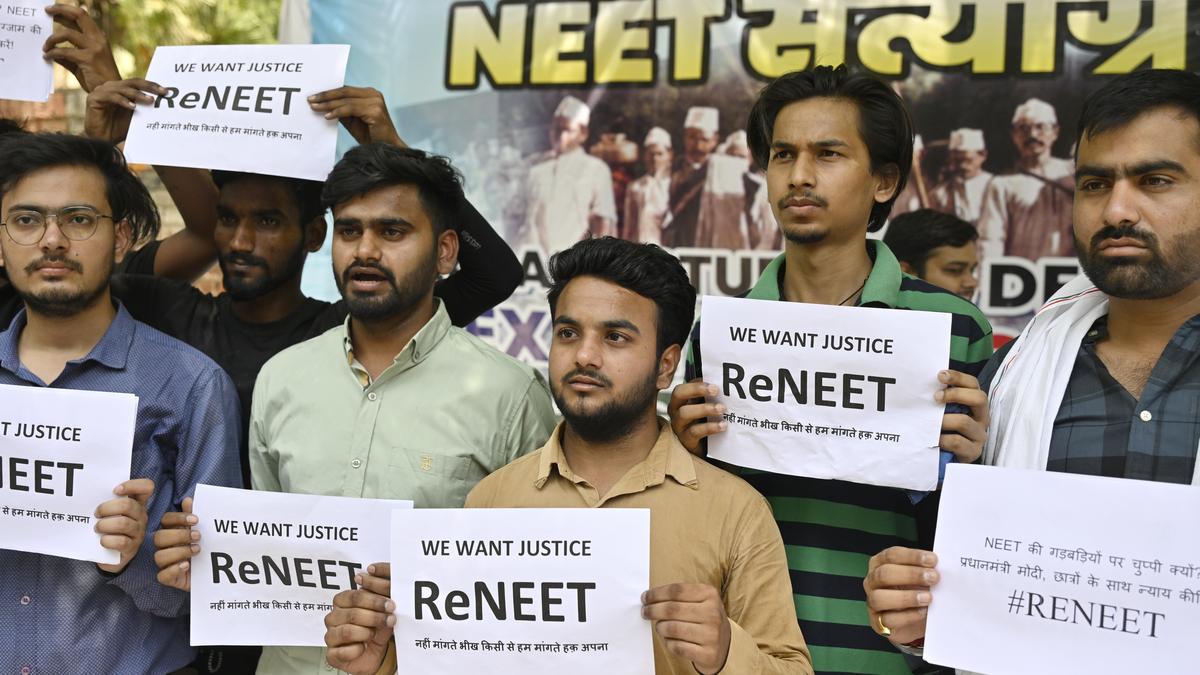
The NEET sheeters
The Hindu
Amaravati's tumultuous journey with three capitals proposal, protests, legal battles, and hopes for revival under new leadership.
On May 5, after a tense 3.2 hours of answering 180 questions, 18-year-old Jind resident Shubham Lohan, expected a near perfect score of 705/720, in what would be his second attempt at the National Eligibility cum Entrance Test (NEET) that qualifies students to study medicine.
Lohan says he attempted the test again this year because he hoped to improve his score for an MBBS in one of the 20 premier All India Institutes of Medical Sciences (AIIMS) that offer nearly 2,000 seats. He quickly calculated his possible score based on the answer key provided by his coaching class. The test is multiple-choice-based, and scores are calculated through a computerised system based on Optical Mark Recognition (OMR) technology.
“I was expecting to get admitted to AIIMS Jodhpur or Rishikesh,” he says. But a month later, when Lohan received the mark sheet, he was shocked. “My score was 705 (out of 720), but my rank was inflated by almost four times, to 1,177,” he says. “I belong to the General Quota, so I have next to no expectations of bagging a seat in AIIMS,” says Lohan, who has dedicated two years after school towards NEET preparation. He was hoping for a rank of about 300 based on the previous years’ records.
Over 2.3 million students like Lohan appeared for NEET. Of these, 67 got full marks, as revealed in the list of top 100 candidates that was attached in the public release. Since this had never happened before, students and their parents were thrown into confusion because even those who scored what would be considered a high mark were pushed down in the ranking system.
Two days after the results, the National Testing Agency (NTA) that conducts NEET and a few other centralised entrance exams, revealed through a press statement that “grace marks” were given to 1,563 candidates for “loss of time”, when exams began late in some centres. Marks were also given for an error in a Physics concept in the NCERT textbook.
Students began demanding a re-exam. After the results were declared on June 4, public interest litigations (PILs) were filed in the Supreme Court demanding a fair probe. The NTA was compelled to open a probe, but the four-member committee is headed by Pradeep Kumar Singh, the chairperson of NTA, the very agency that has found itself in the eye of a storm.
In its decision on June 13, the SC ordered that the compensatory marks be cancelled and those students be given an option of a re-exam.





















 Run 3 Space | Play Space Running Game
Run 3 Space | Play Space Running Game Traffic Jam 3D | Online Racing Game
Traffic Jam 3D | Online Racing Game Duck Hunt | Play Old Classic Game
Duck Hunt | Play Old Classic Game











